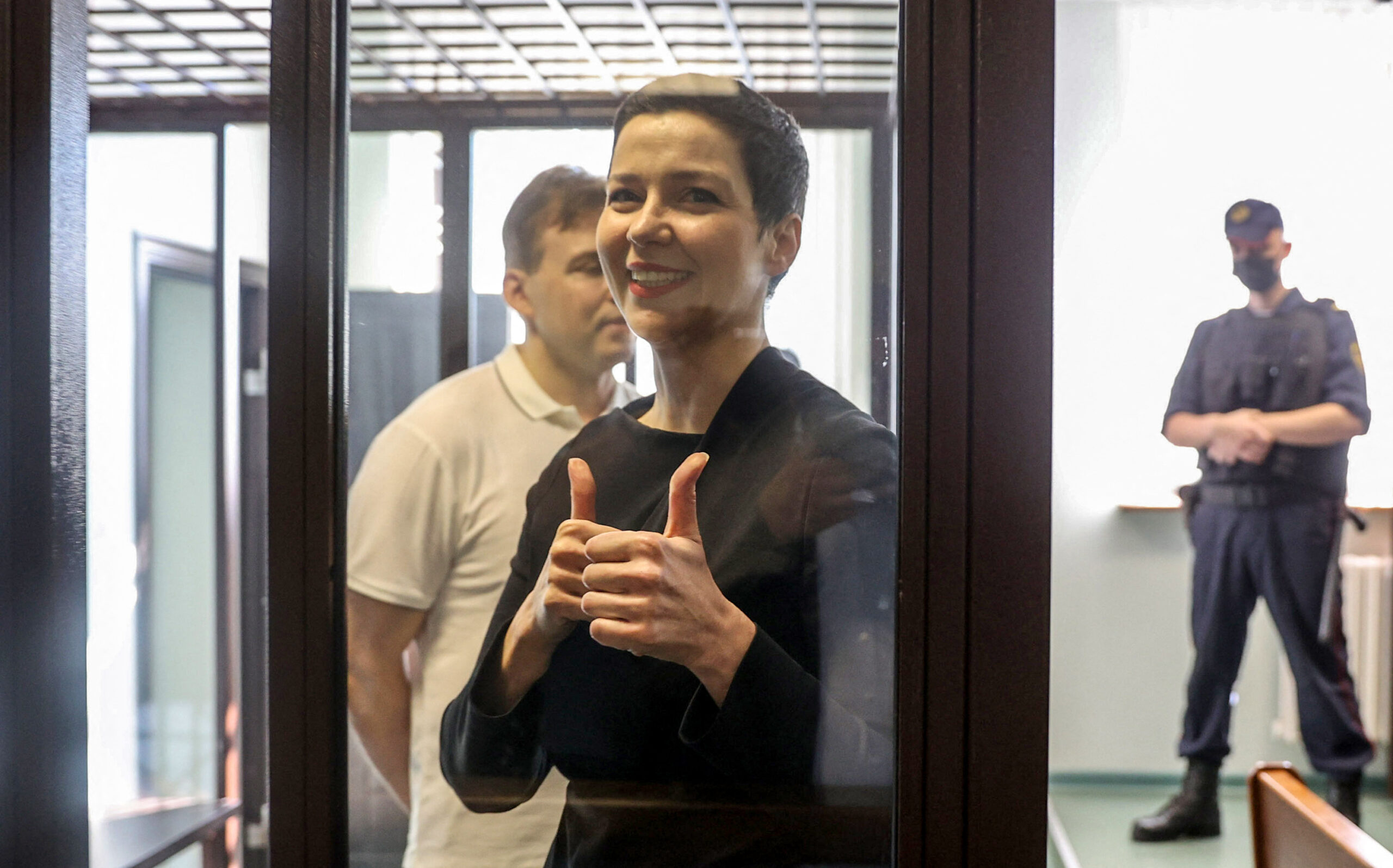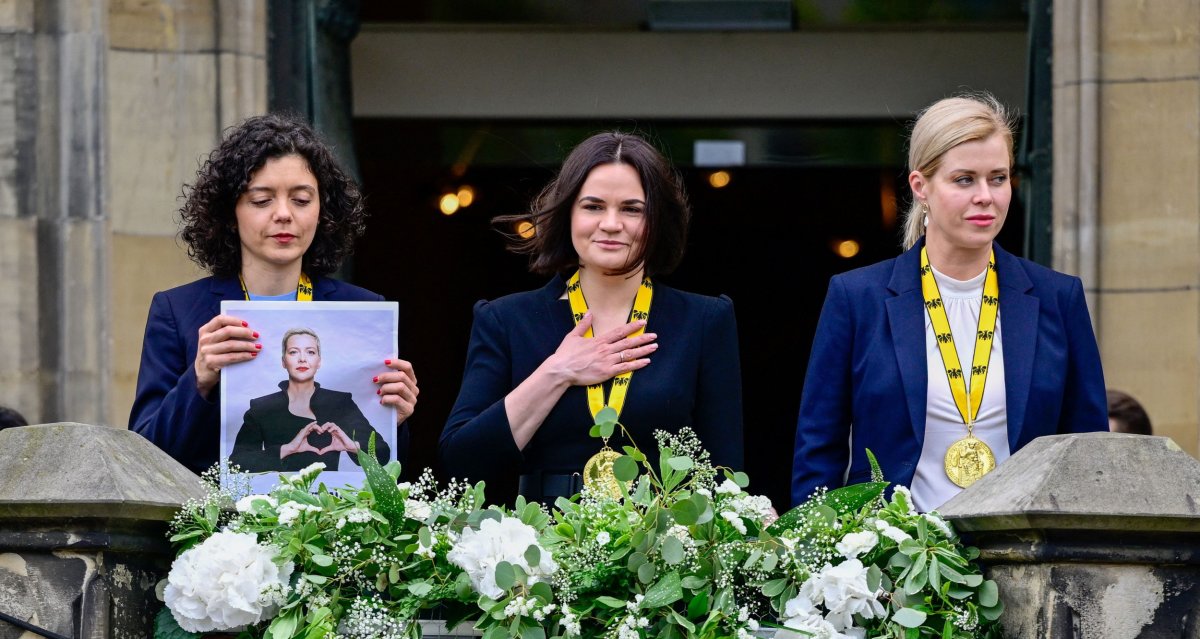
Imprisoned Belarusian opposition activist Maria Kolesnikova is considering asking for a pardon from President Alexander Lukashenko after more than four years in prison, her family said Wednesday.
Her father, Alexander Kolesnikov, spoke to the media a day after seeing his daughter for the first time in 20 months.
His daughter is serving an 11-year prison sentence in Belarus after being convicted on charges of “conspiracy to seize power” and “harming national security.”
The 42-year-old positioned herself as a central opposition figure during the 2020 protests against Lukashenko’s re-election––a race condemned by much of the international community for being fraudulent to the point of European Union sanctions.
“I finally could embrace her,” Kolesnikov said, adding that his daughter was “in relatively normal condition.”
He shared that the visit was granted on condition that he not release further details of her condition or location. Discussing the possibility of a pardon, Kolesnikov said, “She is thinking about it.”
RAMIL NASIBULIN/BELTA/AFP via Getty Images
How Did Maria Kolesnikova Become a Popular Activist?
Kolesnikova, a classically trained flautist-turned-activist, was a prominent face in Belarus’s 2020 mass protests that erupted following Lukashenko’s re-election to a sixth term. He is currently the longest-serving head of state in Europe.
Known for her charismatic presence among activism circles, she has since suffered a serious illness and underwent surgery while in prison near Gomel.
During her work as campaign chief for opposition candidate Viktar Babaryka, Kolesnikova’s popularity grew, and her now-trademark gesture of forming a heart with her hands made her a recognizable figure across protests.
Kolesnikova’s sentence, issued in 2021, was one of several high-profile prosecutions tied to the Coordination Council, an opposition group she helped lead. Mass arrests have been reported across the country, with Belarusian police accused of violently suppressing peaceful demonstrations and detaining roughly 65,000 individuals since 2020.

Contributor/Getty Images
Family Visits: A Token Gesture or Policy Shift?
Following her arrest in September 2020, Kolesnikova made international headlines by tearing up her passport at the Belarus-Ukraine border to prevent what she said was a forced deportation by Belarusian authorities via kidnapping in Minsk.
She was returned to Belarus and detained.
Other detainees include human rights group Viasna’s founder, Nobel Peace Prize laureate Ales Bialiatski, as well as 1,300 other opposition figures. At least seven are believed to be dead.
Even as Lukashenko has pardoned some political prisoners, Belarusian authorities have launched a new wave of arrests, seeking to uproot any sign of dissent before the next election in 2025.
However, Pavel Sapelka, also of Viasna, said allowing Kolesnikova to see her father could be a signal from Lukashenko that he’s open to dialogue.
“Lukashenko is waiting for Western reaction to the latest steps and is prepared to bargain ahead of January’s election,” he said.
The president requested a meeting with her shortly after her detainment to discuss changes to the Constitution, which she declined in solidarity with her fellow political prisoners.

SASCHA SCHUERMANN/AFP via Getty Images
‘Dying of Hunger’ in Isolation
Kolesnikova’s younger sister, Tatsiana Khomich, told Euronews in an interview earlier this year that she is “dying of hunger” and now weighs less than 100 pounds.
She has witnessed this decline through 10-minute, bimonthly video calls.
An advocate and supporter of Babaryka herself, she has testified to President Joe Biden’s Summit for Democracy, the Geneva Human Rights Platform, the European Parliament, and the U.S. Congress, in the name of her sister’s release.
Khomich says much of her sister’s written correspondence is blocked or heavily censored by the jail––she receives no more than 5 percent of letters written to her––and when she queries this, she is told, “Everyone forgot about you,” her sister says.
Viasna alleges she and her fellow prisoners live in total solitary confinement, deprived of books, news, and familial contact.
Until an appeal transpires, she will remain in conditions classified as “torture.”
This article includes reporting from The Associated Press.
